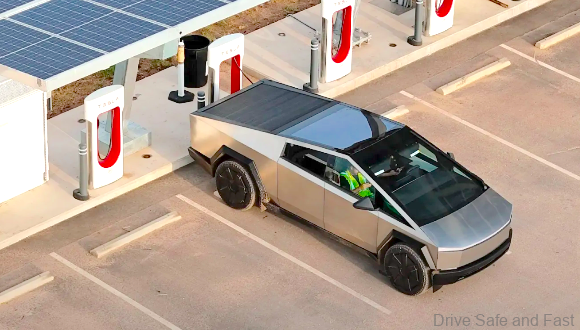If Trump wins the next election, the age of Chinese EV dominance may be over
On the day Tesla launched its Cybercab, former U.S President Donald Trump announced on the campaign trail that, if reelected, he would ban Chinese-made autonomous vehicles. Speaking at a Detroit Economic Club event, Trump emphasised his commitment to protecting American interests from what he perceives as a threat posed by Chinese automobiles.

He declared, “I will continue my first-term efforts to protect America from the threat of Chinese automobiles. I will stop Chinese and other countries from producing automobiles and autonomous vehicles.” Well, I suppose even 100 percent tariffs weren’t enough to deter American buyers from Chinese vehicles so this is their last option.
Moreover, Trump’s campaign platform also included promises to make car loans fully tax-deductible and to provide small businesses with larger tax deductions. During his speech, he engaged the audience by asking, “Does anybody like an autonomous vehicle? You know what that is, right? Some people do, but it’s a little concerning to me. We’re going to stop them from operating on American roads.”
Currently, several Chinese tech companies and startups are testing fleets of self-driving cars in major cities like Wuhan and Beijing. Some have even begun commercial operations and are running robo-taxi services in urban centres. In the U.S., competition is growing, with companies like Alphabet’s Waymo and Uber also expanding their driverless car services.

Waymo, for instance, recently reported more than 100,000 weekly paid rides across Phoenix, San Francisco, and Los Angeles. Trump’s proposed ban on Chinese autonomous vehicles could bolster U.S. tech companies, including those backed by billionaire Elon Musk. On the same day as his announcement, Musk revealed Tesla’s highly anticipated robo-taxi and robo-van, set to launch in 2026.
On top of that, these new vehicles will be fully electric and automated, lacking traditional steering wheels and pedals. Musk has openly supported Trump, even hinting at a possible role in his administration if he wins, and made an appearance at a Trump event, referring to himself as “Dark MAGA.”
The Biden administration is also paying attention to China’s advancements in autonomous vehicle technology. Vice President Kamala Harris has suggested a ban on Chinese-made hardware and software in connected vehicles, citing national security concerns. If enacted, this measure would undermine the relatively lenient regulations that Chinese firms have enjoyed in the U.S. market.

We got all this from Yahoo Finance and their full article is linked here. Thank you Yahoo Finance for the information and images.

